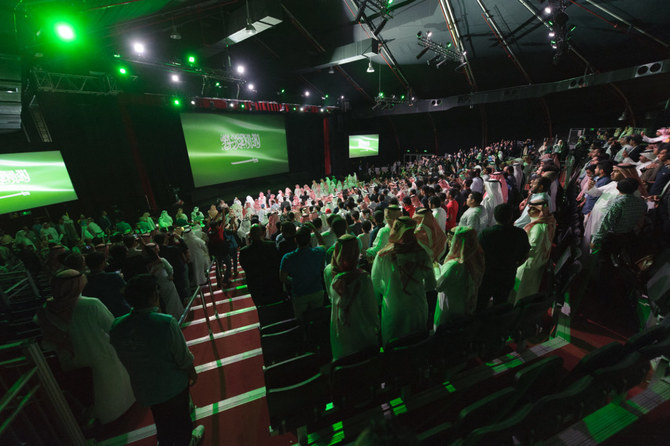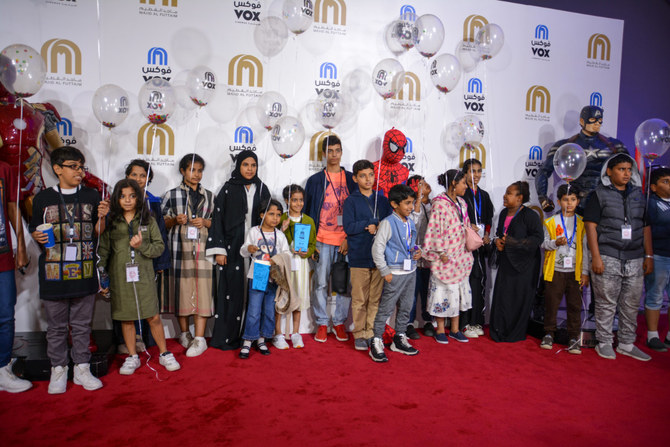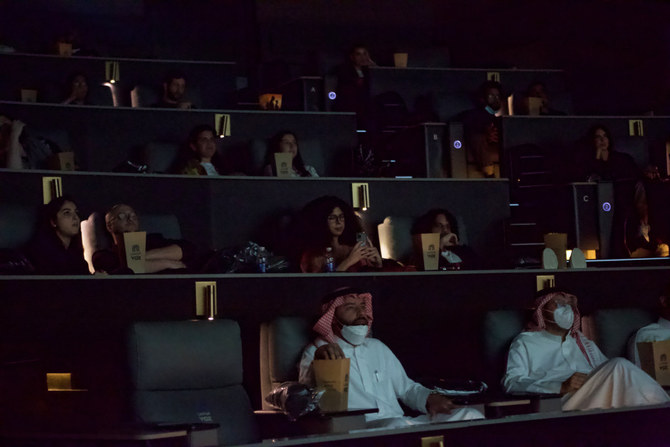JEDDAH: When Saudi Arabia first announced it was lifting its 35-year ban on movie screening four years ago, few predicted the strides the Kingdom’s fledgling film industry would soon make.
Since April 18, 2018, Saudis have been free to visit local cinemas, a completely new experience for many.
“I watch a movie at least twice or three times a month and wouldn’t mind going more if not for my frequent travels,” Jawaher Abdullatif, a 35-year-old private sector worker from Riyadh, told Arab News.
“You’re transformed into the world of the film. It’s an amazing feeling and I love that I can finally do that in the comfort of a cinema nearby.”
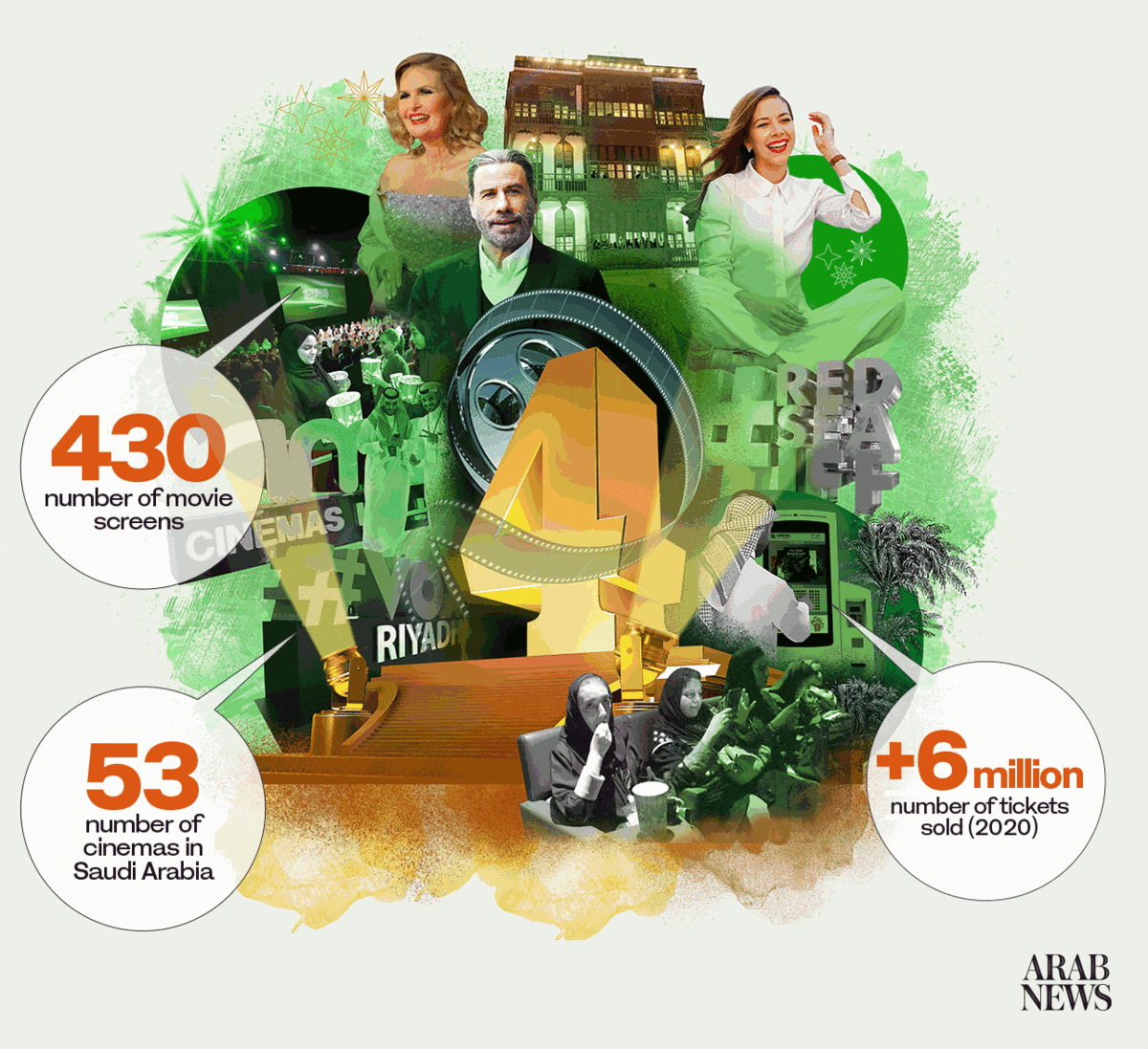
The change was announced in 2017 by Crown Prince Mohammed bin Salman, to improve quality of life in the Kingdom through entertainment.
For older generations who remember the days before the ban, the return of movie theaters was a heartening moment. Mostafa Zain, a retired engineer from Jeddah, recalls being captivated by cinema as a boy.
“I was good friends with the Jamjoums who established the first cinemas in the city,” Zain told Arab News.
“Even after the ban, I would always find the time to go watch a movie as I frequented Cairo a few times a year in the 1980s and ‘90s, and later on to the US. We’d always find the time for a movie. Today, I can wake up and check the movie listings and I book my film in no time. I don’t need to fly anywhere to watch a movie anymore.”
Opinion
This section contains relevant reference points, placed in (Opinion field)
The General Commission for Audiovisual Media, one of the governing authorities established to regulate and operate cinemas in the Kingdom, estimates there will be 2,600 movie screens in Saudi Arabia by 2030, in an industry worth around $1.2 billion.
More than 50 movie theaters, operating some 430 screens, have been established across the Kingdom, managed by Vox Cinemas, Muvi, Cinepolis, AMC, and Empire. “It takes less than five minutes to book a seat at a movie theater today,” Zain added.
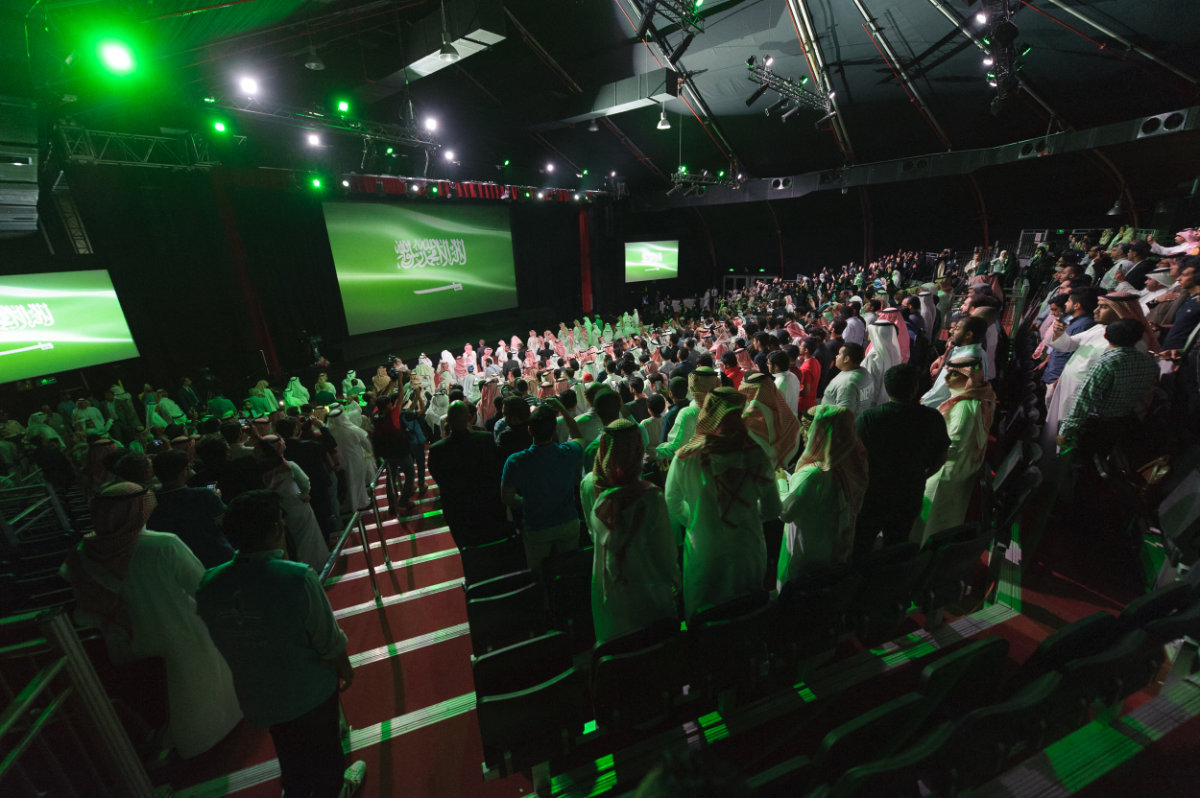
By 2030, the number of theaters in the Kingdom is expected to swell to 2,600. (AFP photo)
Saudi Arabia’s first cinemas appeared in the Eastern Province in the 1930s, established by Westerner oil workers.
By the 1960s and ‘70s, cinemas had sprung up in major cities across the country. Films were screened in football clubs, backyards, courtyards and hotels.
But in the early 1980s, in the aftermath of the 1979 terrorist attack on Makkah’s Grand Mosque, religious conservatism began to gain traction in the Kingdom, discouraging public entertainment including cinema-going.
To get around the ban, many Saudis would regularly visit Bahrain or the UAE.
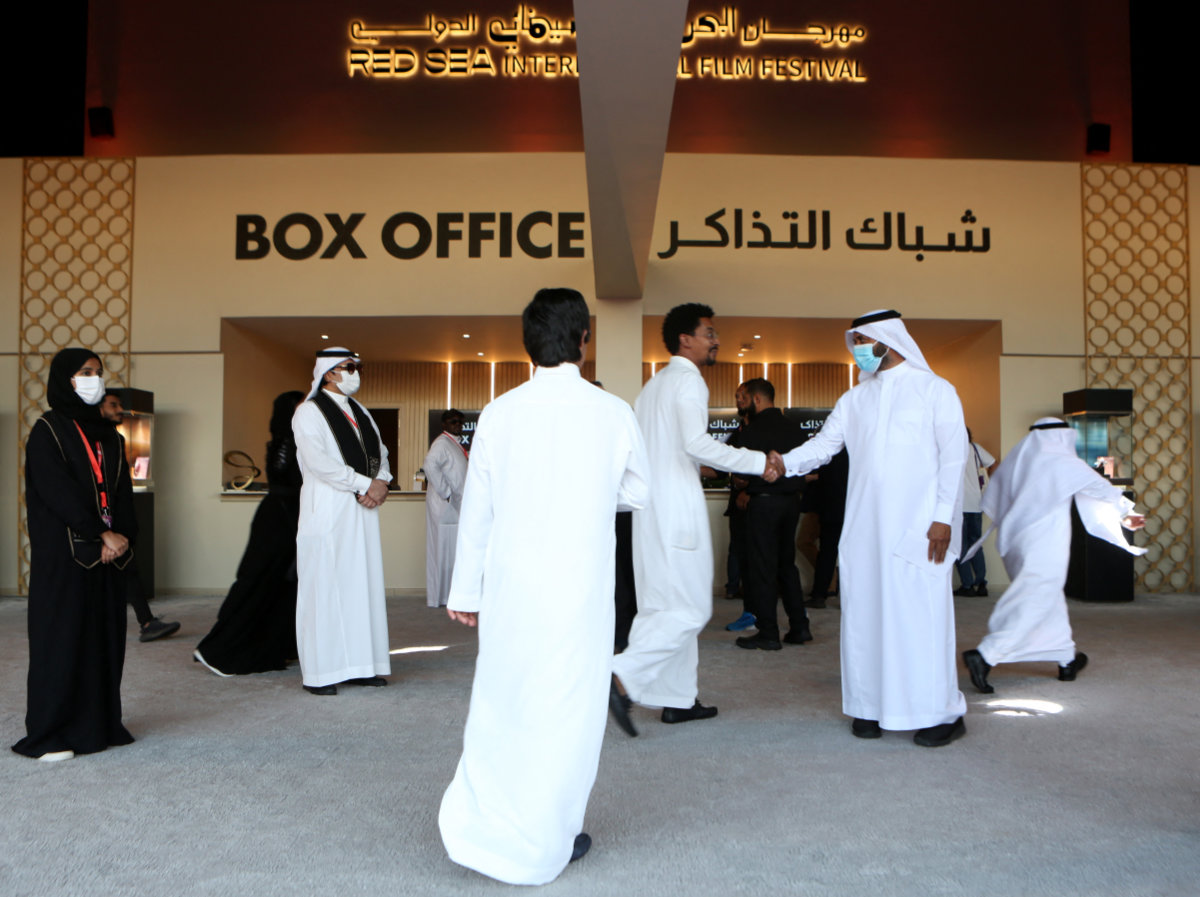
The opening of theaters in the Kingdom has been widely welcomed by the Saudis, who used to flock to Bahrain or Dubai to for entertainment. (Photo Courtesy: Red Sea Film Festival)
Nahar Al-Hamrani, a producer and managing director of AlMaha Films in Jeddah, would fly two-and-a-half-hours to Dubai to catch a film.
“Sometimes I’d only go to watch a film, grab a bite to eat, and head back home again,” he told Arab News.
“As soon as cinemas opened in Saudi Arabia, everything changed. Even the experience changed. It’s fun, convenient, and, for some odd reason, there’s just something different about going to the cinemas here. It’s right in our backyard.
“For many of us who traveled abroad during summer holidays, we’d have to wait for months just so we can go and experience the full movie experience. Now, it’s simply through a click on our screen and not part of our travel plans anymore.”
For a time, Western movies appeared on television via MBC2 or via direct satellite networks such as Orbit, which later merged with Showtime to become the Orbit Showtime Network.
Most Saudis could only access Western movies on smuggled VHS. When DVDs appeared, they would watch blurry knock-offs bought from street-hawkers or from behind the counter at local stores.
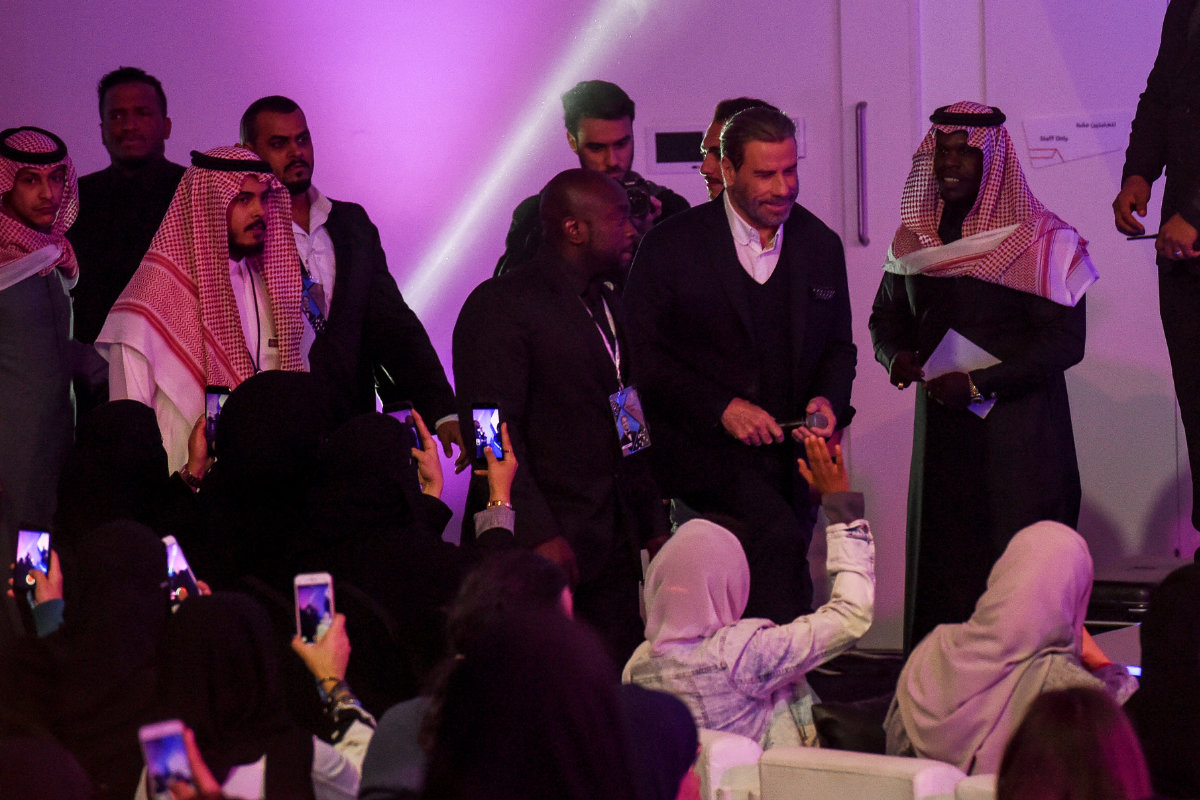
Hollywood actor John Travolta attending a special event organized by the Kingdom's General Authority for Entertainment in Riyadh in 2017. (AFP)
Speaking at a special event at Riyadh’s Apex Convention Center in December 2017, organized by the General Authority for Entertainment to mark the lifting of the ban, Hollywood actor John Travolta hailed the historic move.
“I think it’s an important moment and history, because it’s my understanding that this is the only country in the world that doesn’t have cinema and the idea that it is now happening again after 35 years, I feel like I am part of a celebration of freedom that is connected to a beautiful thing in humanity, so that’s a good thing,” Travolta said.
Cinema giants have begun pouring into the country.
Owned and operated by Majid Al-Futtaim Cinemas, VOX Cinemas is the cinema arm of Emirati retail and leisure giant Majid Al-Futtaim and one of the fastest growing in the region, operating 149 cinema screens in Saudi Arabia alone.
Mohamed Al-Hashemi, country head of Majid Al-Futtaim Leisure, Entertainment, Cinemas and Lifestyle in Saudi Arabia, said: “Since the beginning, we have differentiated ourselves from our competitors with our holistic approach.
“VOX Cinemas is a leisure and entertainment concept that seamlessly integrates state-of-the-art cinema, interactive attractions such as bowling and arcade games and signature food and beverage concepts into one enriched experience.”
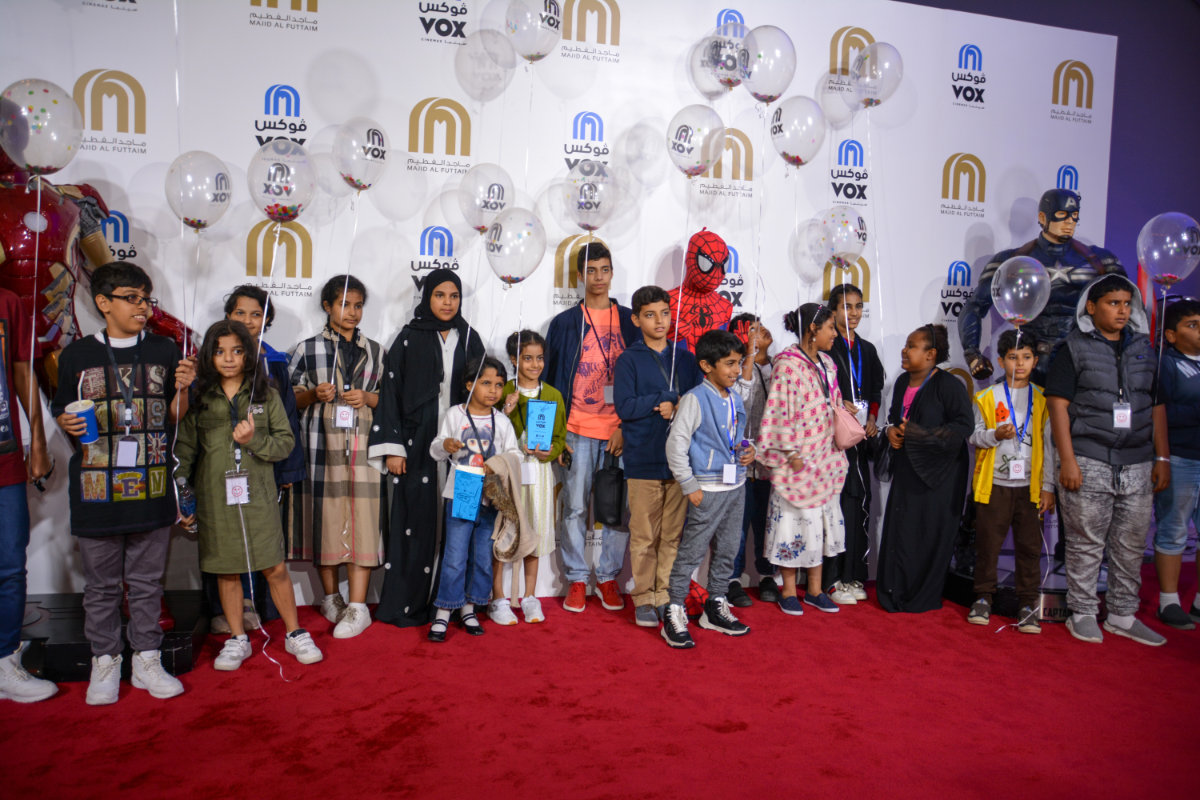
Young ones count among the growing number of movie fans in the Kingdom. (AN photo by Huda Bashatah)
Cinema’s return to Saudi Arabia has reinvigorated the domestic industry and inspired new festivals to showcase and celebrate it.
The industry saw theatrical box office market growth worth $238 million in 2021 — more than double the previous year’s takings of $122 million, dampened by the COVID-19 pandemic.
The year was capped off by the Red Sea International Film Festival in December, which saw the big names of Arab cinema, Hollywood, and Bollywood grace the red carpet at Jeddah’s UNESCO World Heritage Site, Al-Balad.
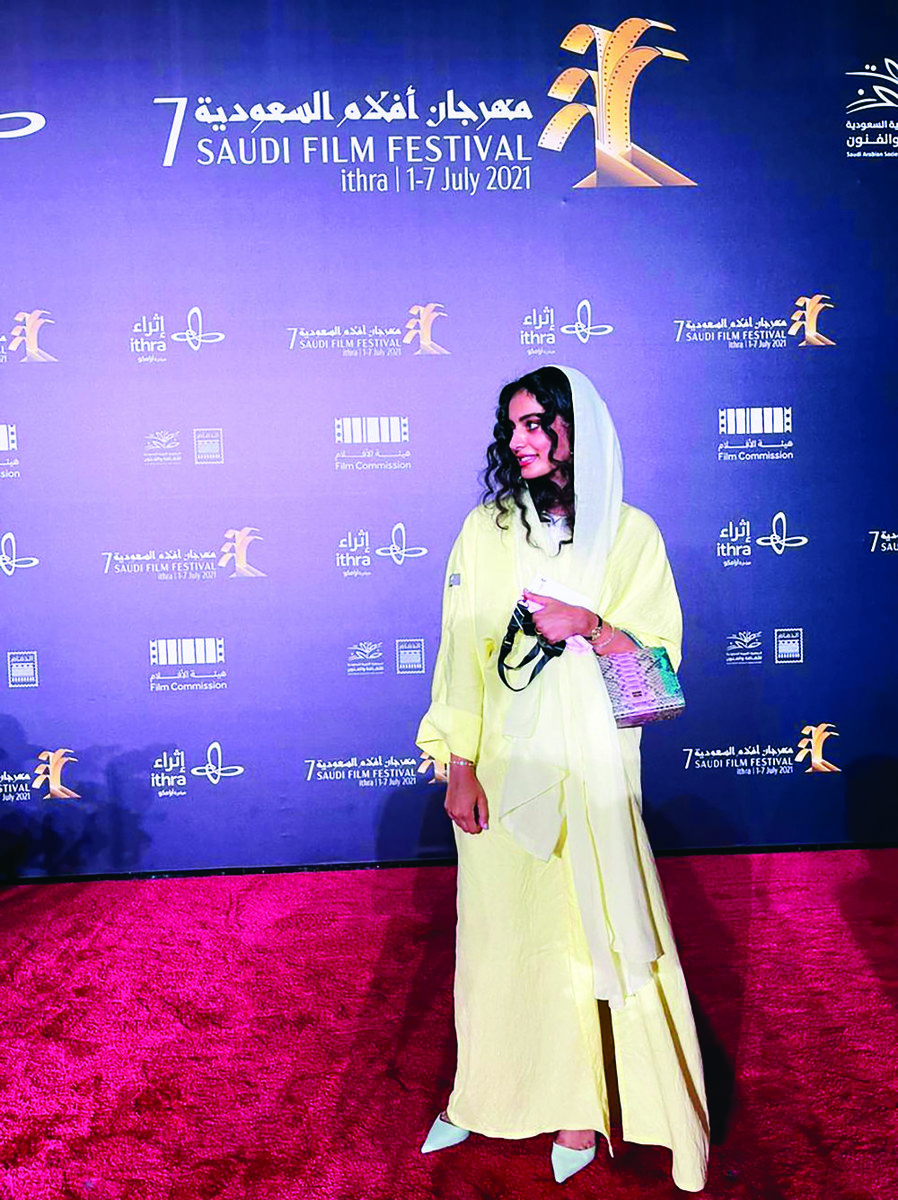
Sara Al-Munef, a young film director whose short feature screened at the Saudi International Film Festival at Ithra in Dhahran last year. (Supplied)
There, on three big screens erected by VOX Cinemas, some 30,000 film fans enjoyed 138 films originating from 67 countries, including 48 Arab premieres and 27 Saudi films.
“Cinemas and content production offer enormous potential for economic growth,” said Al-Hashemi of Majid Al-Futtaim. “We recently announced ambitious plans to bring 25 local movies to the big screen in the next five years.
“Our goal to boost regional film production reiterates our commitment to realize the goals of Vision 2030 and is aligned with the Film Commission’s strategy to establish the Kingdom as a world-class film hub.”






